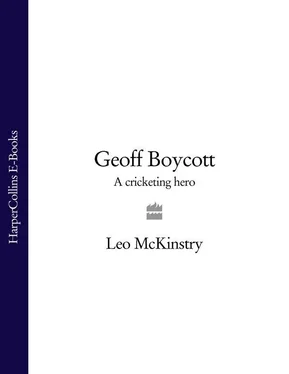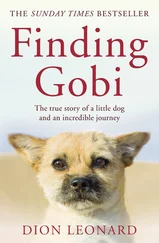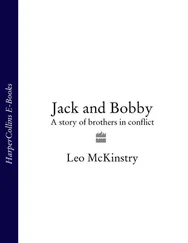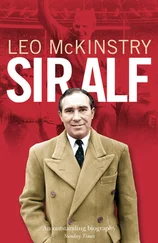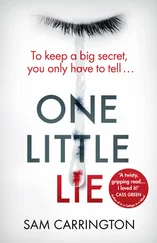The summer of 1958 was Boycott’s last at Hemsworth. He passed seven O levels and could have easily stayed on to do A levels, perhaps going on to further education. Ken Sale says that he was certainly competent enough to have gained a good degree at a red-brick university. Dudley Taylor goes even further: ‘With his brains and cricketing ability, he might well have got to Cambridge if he had been to public school.’
But two factors made him leave school at 17. First, he felt he had been a burden on his parents for too long. In an interview with the BBC in 1965 his headmaster, the late Russell Hamilton, who had been keen for him to stay on for his A levels, said: ‘Always at the back of his mind was the fact that financially he had been a big enough strain on his parents and that he really ought to get himself a job.’ The second, perhaps lesser, consideration was Boycott’s iron determination to make cricket his career, for which a university degree must have seemed an irrelevance. Everyone who knew him in the mid-fifties was struck by his single-minded ambition to become a Yorkshire cricketer. ‘Cricket was always going to be his trade,’ says Terry McCroakham. Indeed, the choice of Boycott’s occupation appears to have been dictated by his playing ambition, for the post he took up in the Ministry of Pensions in Barnsley, though mundane, offered a great deal of flexibility in his working hours. What Boycott did was to work every shift he could in the winter thereby building up extra leave that could be taken during the summer.
Yet, despite the advantages of this job for his cricket, Boycott’s early departure from school left him, in the longer term, with feelings of resentment towards the more privileged. The lack of a university education rankled, and was regularly used as a stick with which to beat his opponents in the supposed ‘cricket establishment’, with Boycott posing as the champion of the ordinary working public against the public-school, Oxbridge ‘gin and tonic brigade’. When Mike Brearley was awarded an OBE, Boycott said, ‘If I’d been to Cambridge, I’d have a knighthood by now.’ Similarly, this chip on his shoulder has also been reflected in his often boorish antics at official gatherings – ‘he could be so disrespectful. You’d be at a reception, chatting to some dignitary, perhaps an Oxford-educated bloke, then Boycs comes barging in, doing the guy down, “all the bloody same, you lot,” and so on. You would just feel so embarrassed,’ says one ex-England player who toured with Boycott. Mike Atherton, Cambridge graduate and England’s longest-serving Test captain, told me, ‘I have never had much of a problem with Geoff but I always felt he had a slight beef about people who went to Cambridge University. There is definitely a chippiness there, though in my case it may have been mitigated by the fact that I was a fellow northerner.’
Boycott worked as a clerical officer at the Ministry of Pensions from 1958 until 1963. His duties were hardly taxing for a man of his intelligence, but because of his cricket ambitions he never applied for promotion. Even in this job, Boycott demonstrated those patterns of behaviour that became so well known to his cricket colleagues. One fellow employee, who gave Boycott a fortnight’s training when he started in his post, told me: ‘I liked him and never had any problems with him, perhaps because I had shown him the ropes. But he could be very rude to others, never hesitating to tell someone to get stuffed. There was also a degree of resentment over the time he took off for cricket in the summer. He was something of an eccentric – when he brought in his lunch it often consisted of half a dozen cakes, no meat or bread. The social side of office life, like parties or outings, never interested him. He was very much a loner.’
By the time Boycott entered the civil service, he had already made rapid progress up the ladder of Yorkshire cricket. As well as producing a string of outstanding performances for Hemsworth Grammar, he had also appeared successfully for both the South Elmsall district team – averaging around 70 per game as well as captaining the side – and Yorkshire schoolboys. In the summer of 1958 he was vice-captain for the Yorkshire Federation’s Under 18s tour of the Midlands. Boycott had little chance to shine, however, as the tour was ruined by poor weather.
Just as importantly, he was also playing club cricket for Barnsley, in one of the toughest environments in the world, the Yorkshire and Bradford League. Boycott had moved from Ackworth to Barnsley when he was 16, on the advice of his uncle Algy who felt that ‘we ought to get him into a higher class of cricket’. Furthermore, Barnsley also had a very good batting track. So Algy had taken Boycott to the winter nets one night at Barnsley’s ground at Shaw Lane, where his batting was watched by Clifford Hesketh, chairman of Barnsley and a leading member of the Yorkshire committee. According to Algy, Hesketh took a brief look at Boycott, then said, ‘Oh, yes, we’ll have him.’
Given the strength of Barnsley, Boycott could not immediately break into the First XI, but he did well for the seconds, enjoying an average of 66. Then, towards the end of the season, he played two games for the senior side, making 43 not out in the second match in a victory against Castleford. In the following two summers, 1958 and 1959, he was a regular member of the Barnsley First XI, performing creditably but with few heroics. One of the leading members of the Barnsley club, Gordon Walker, was later to recall Boycott as a moody loner, with an inclination towards foul language and slow scoring: ‘I’d say we had several players who looked better at the time. It’s been sheer determination that’s made him one of t’ best we ever had in county.’
Through a remarkable twist of history, the modest south Yorkshire club at this time included a trio of cricketers who were subsequently to be amongst the biggest stars of modern Britain: Boycott, Dickie Bird and Michael Parkinson. It is perhaps no coincidence that all three had the same background, the sons of coal miners who learnt early in their lives the value of hard work and strength of character. But even Dickie and Parky were struck by the intensity of Boycott’s ambitions. In a radio interview in the seventies, Parkinson explained: ‘He always had this extraordinary, obsessive dedication. I have never met an obsession like it in any athlete. I remember the first game I really clocked his talent was when we were playing Scarborough and they had a bowler called Bill Foord, good enough to play for Yorkshire on a few occasions. And Geoffrey came in at number five. It was a soggy, wet day, and the outfield was damp, with a lot of sawdust on the run-ups. Bill Foord bowled his first ball to Geoff who went on the back foot and hit it like a shell past him. It went right through the pile of sawdust behind the bowler and hit the sightscreen. Foord turned to me and said, “Christ almighty, what’s this lad’s name?”
‘“Boycott.”
‘“I’ll remember that.”’
What Dickie Bird remembers most about Boycott at Barnsley was ‘his application, concentration and his absolute belief in himself. He had one great gift, mental strength. You can have all the coaching in the world but the most important thing is to be mentally strong.’ At Barnsley, Dickie Bird and Michael Parkinson generally opened, and Boycott came down the order, ‘though he handled the quick bowlers pretty well. He was a fine player off his back foot, which is always the hallmark of class, whatever the level. His punch through the offside was his bread and butter shot, with a lot of bottom hand in it. Then he would also pick up his ones and twos off his legs. That is all he did. He played to his limitations. His one weakness was that he played with very low hands going forward but that is the way we were coached in Yorkshire to cope with spin and movement on difficult pitches. The problem with that technique is that, though it might cover deviation it can also leave your hands vulnerable to the one that suddenly rises.’ Dickie Bird is also interesting on Boycott’s personality: ‘He always kept himself to himself, even in those early days. He was very private, didn’t mix much with the people. Parky, Boycott and I were all from the same background but we did not go out together in the evenings. All he seemed interested in was playing and practising as much cricket as he could. Yet he was also very confident and I think some of the older players resented that, meeting this young man who had so much belief in himself.’
Читать дальше
